 |
| First thing, Landon ran into the chapel and said, "Look, mom! A big organ!" |
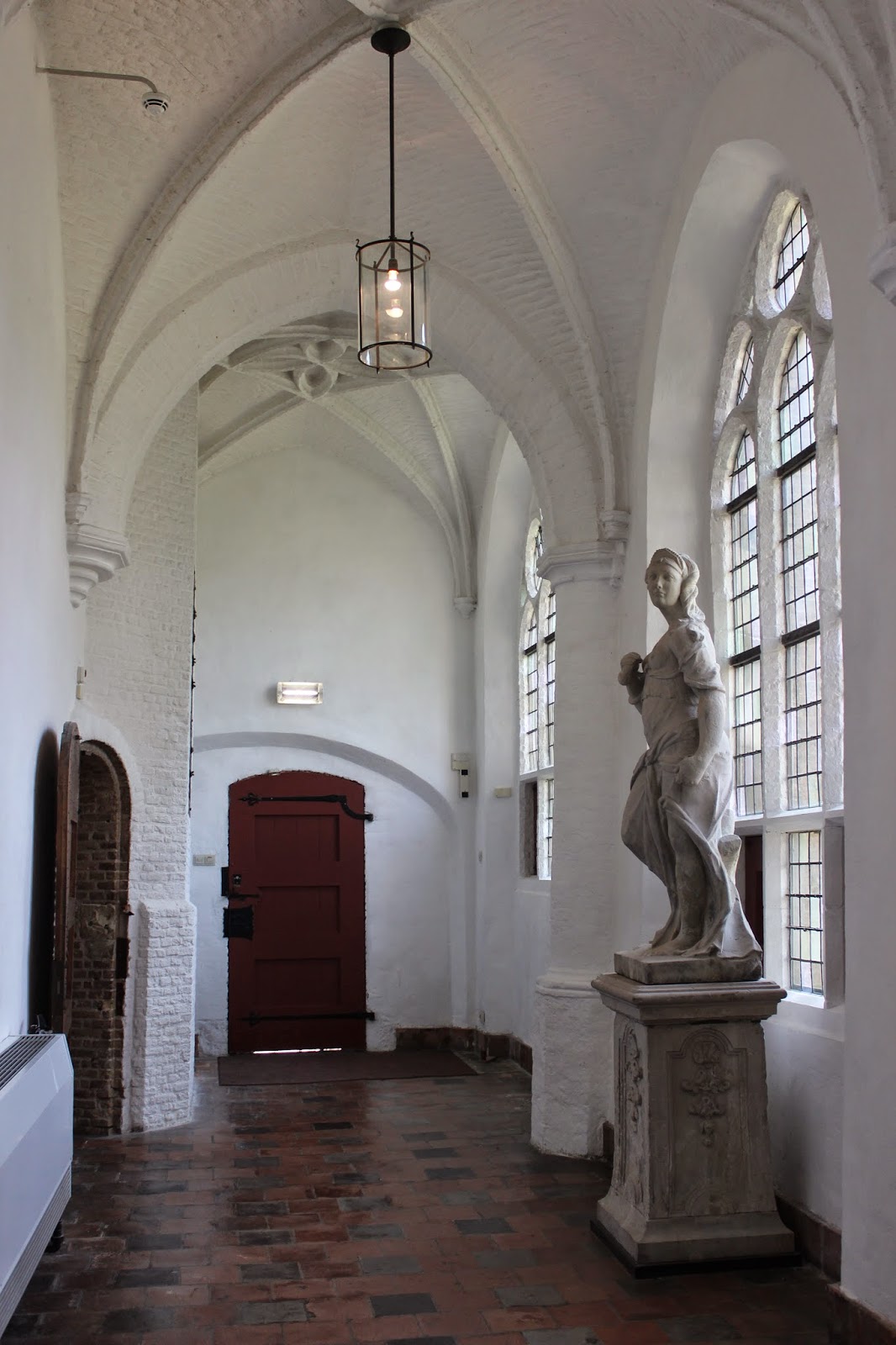 |
| Little room off of the entrance/gift shop |
Our first day in Delft, I fell in love with it. It is small
enough to easily navigate, big enough to have plenty to do, with tons of European charm. I wanted to find an excuse to go there again, and going to
Prinsenhof museum seemed like a great use of a morning. The train ride from
Schiedam to Delft is only 8 minutes, so it makes for easy travel to a
completely different place!
 |
| Landon and the fire place |
 |
| Graphic of William's many wives |
Prinsenhof was the house of William of Orange, the man who
is called “Vader of the Vaderland” or Father of the Fatherland by the Dutch people. During a time of political
turmoil, he stepped forward as a resistance leader to the Spanish occupation,
and eventually was assassinated for it. The political climate was quite
interesting at the time. An Emperor in Brussels appointed his son, Philip, King
of the Netherlands. However, he was Spanish and resided in Spain. The state
religion was Catholicism, but Calvinist Protestantism was also popular and
people were being persecuted for being Protestant. William of Orange wanted
freedom of religion. He was born into a wealthy family in Germany that owned
many estates and parcels of land throughout western Europe. When he married, he
married strategically and gained even more land. His first wife died young and
he married three more times during his life!
 |
| Portraits of William as a young, and older man |
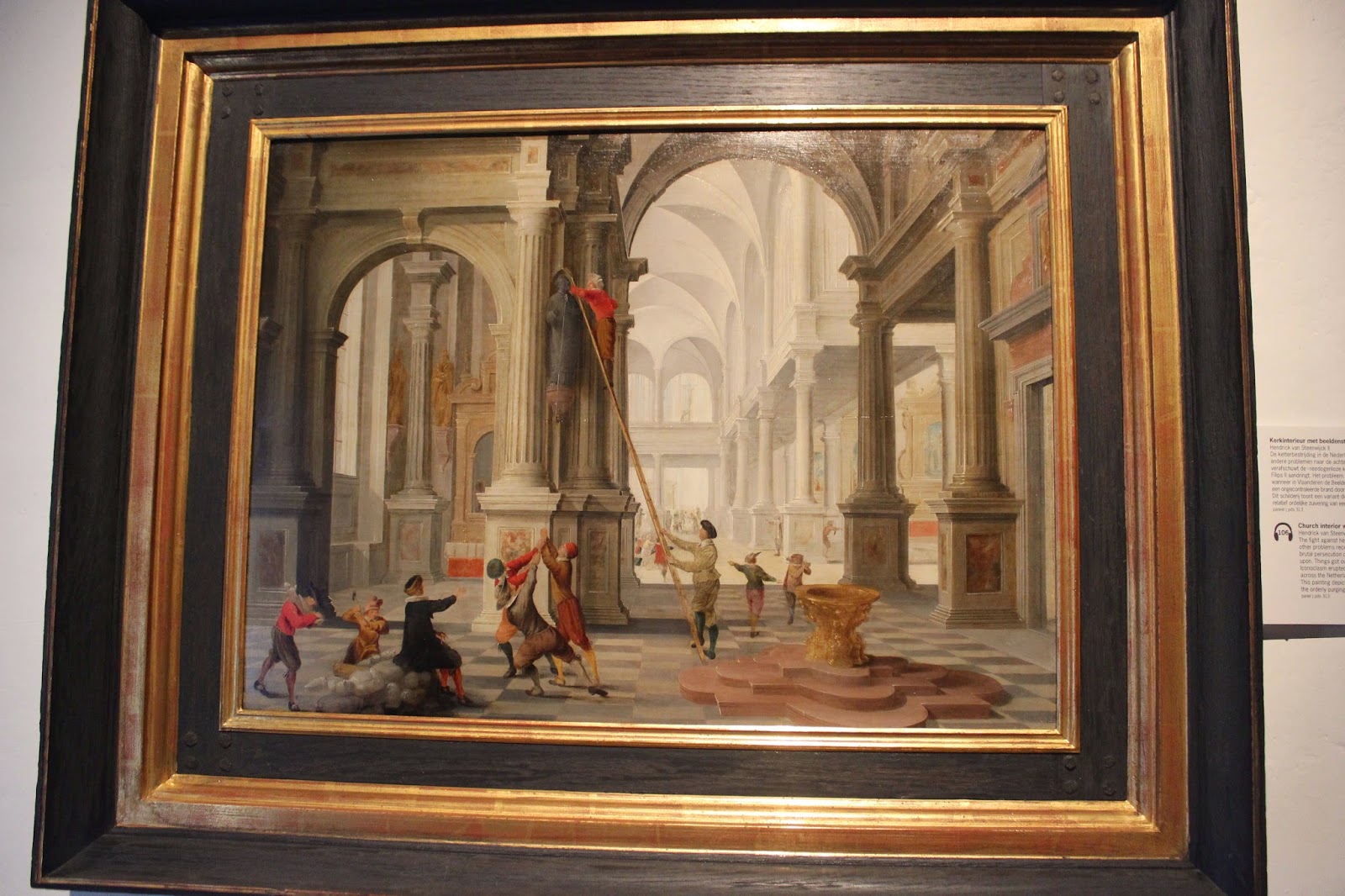 |
| Painting of the Iconoclasm |
The first signs of revolt happened during the Iconoclasm
when Catholic icons, paintings, and anything superfluous was destroyed from the
Cathedrals and churches. Eventually, the revolt of the Netherlands started the
80 year's war and freedom of the Netherlands from Spanish rule. Spanish troops came up and took over towns and villages. There
was much bloodshed to both sides, and the Spanish soldiers were not paid in
money, so anything they took over they plundered for things to take back as
payment. Eventually, a compromise was reached and the Netherland and Belgium
were split and created as separate countries, with Belgium remaining Catholic
and the Netherlands becoming primarily Protestant. William of Orange’s son and
posterity continued to rule the country and that bloodline continues today with King Willem-Alexander and Queen Maxima.
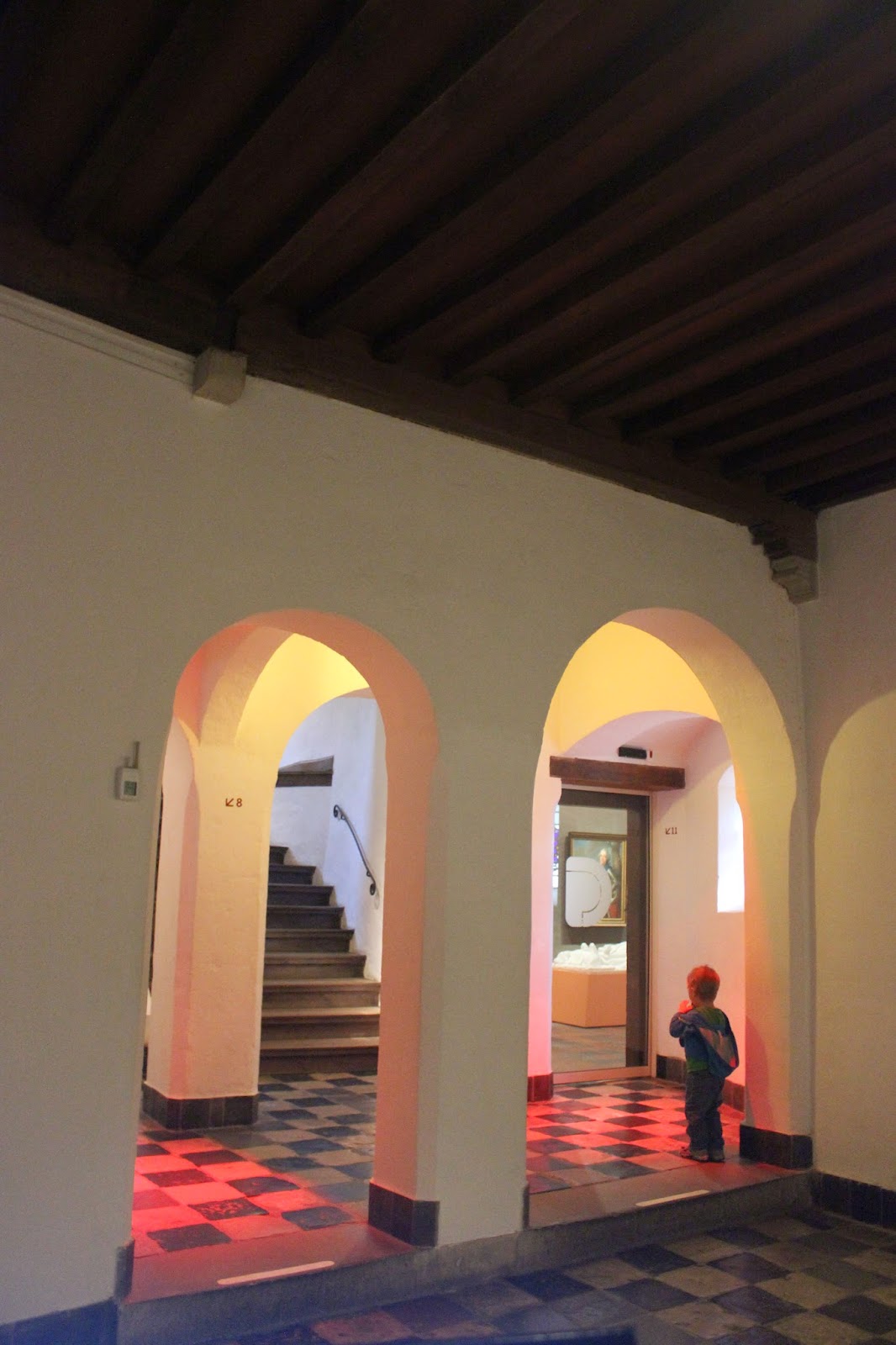 |
| The infamous stairwell and hall |
Along with telling the history of the country, Prinsenhof is
the location of William of Orange’s assassination. The assassin, a Frenchman
working for the Spanish monarchy, hid in a stairwell and waited for William to
come downstairs from having dinner with his family. When he did, he was shot
multiple times in the chest at close range in the stairwell. There are holes or impressions left by the
bullets that are still there today.
Upstairs in the museum is a tribute to all
things Delft. I was impressed by the number of paintings depicting anatomy
lessons. I guess doctors would invite the prominent men of town over and
dissect deceased people for their entertainment and education. Then they would
have a painter commemorate their lesson with a painting. Seems odd to me, but
to each their own I guess. There was a room filled with products and product
lines that originated in Delft, including the company that makes the peanut
butter we ate while we were here. Thanks, Calves!
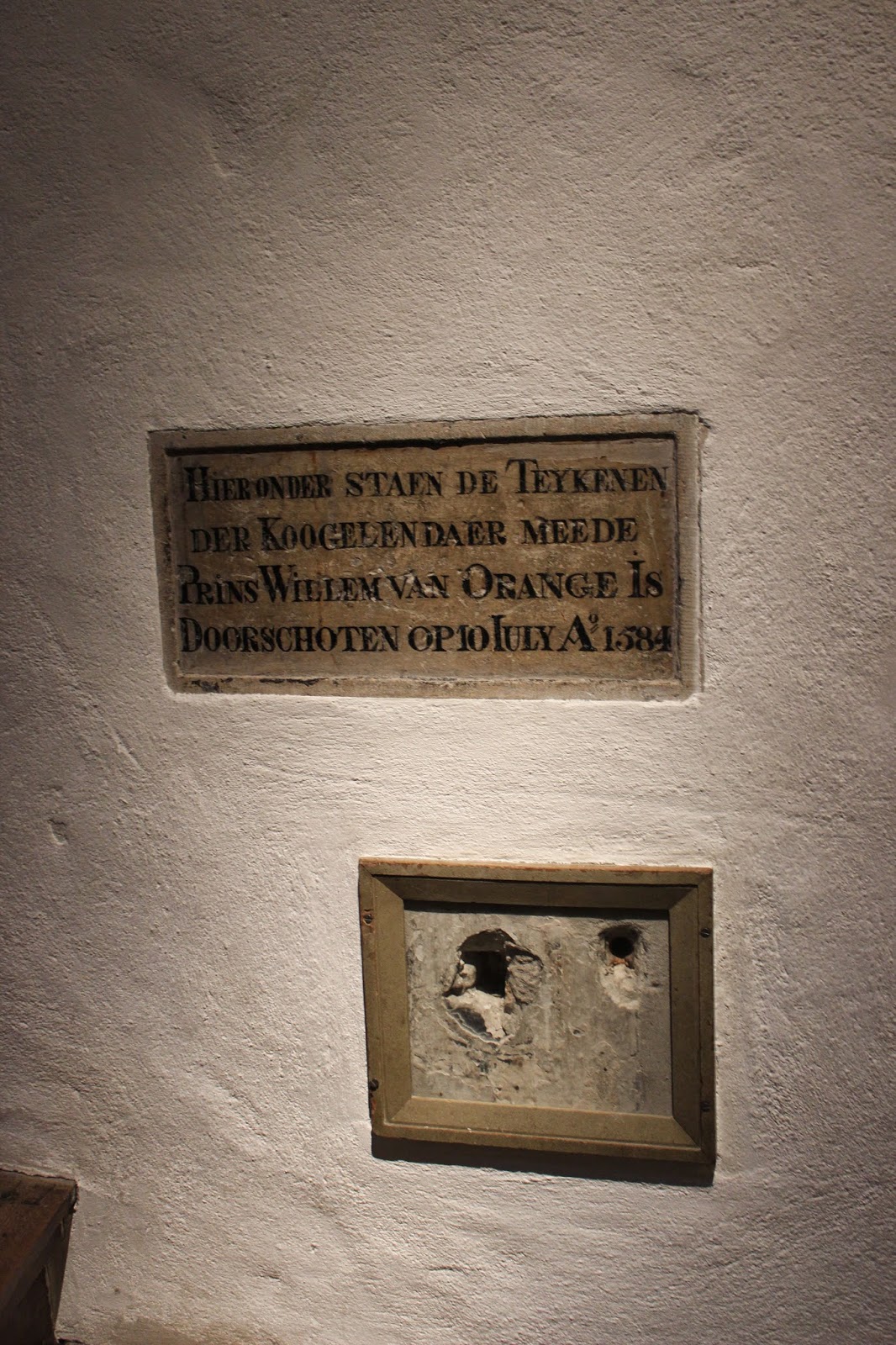 |
Depressions in the wall showing where bullet holes
missed and hit the wall behind William |
 |
| Anatomy lesson painting |
 |
| Spiral staircase |
There was a whole section of the museum dedicated to Delft
Blue pottery. As I had already toured the factory, and expensive porcelain is
no place for a two-year-old, we quickly skirted that part of the museum and
descended through an awesome spiral staircase back to where we started. From
there, we found a garden with a maze of short shrubbery. Landon thought it
looked just like a racetrack and started roaring around pretending to be
Lightning McQueen. Then, he started crashing into bushes and benches and
yelling at me to give him a tow. It was a fun game and got lots of energy out!
 |
| I kept having to remind myself that this was William's House! |
 |
| Prinsenhof fireplace |
We ate at a café right in the shadow of the Oude Kerk, which
is just across the street from Prinsenhof. I shared my love of tostis with
Landon and he approved. I got a panini with pesto and tomato and it was
delicious. Although Landon was running around like crazy, that will still be a
favorite memory of mine, eating a delicious sandwich in this historical city
outside in the sunshine! After lunch, we went briefly to a special exhibition
that I thought was going to be a model of Delft. I even told Landon that there
would be trains, which was a huge mistake. Not only was there not any trains,
but there was nothing of interest to him at all. I had paid for it with the
cost of the Prinsenhof ticket, so I wanted to see it, but it was just a bunch
of older maps and a cool interactive touch screen tool where you could zoom in
on different parts of the city. Just not the train station. So we stayed there
about five minutes.
 |
| Spiral staircase! |
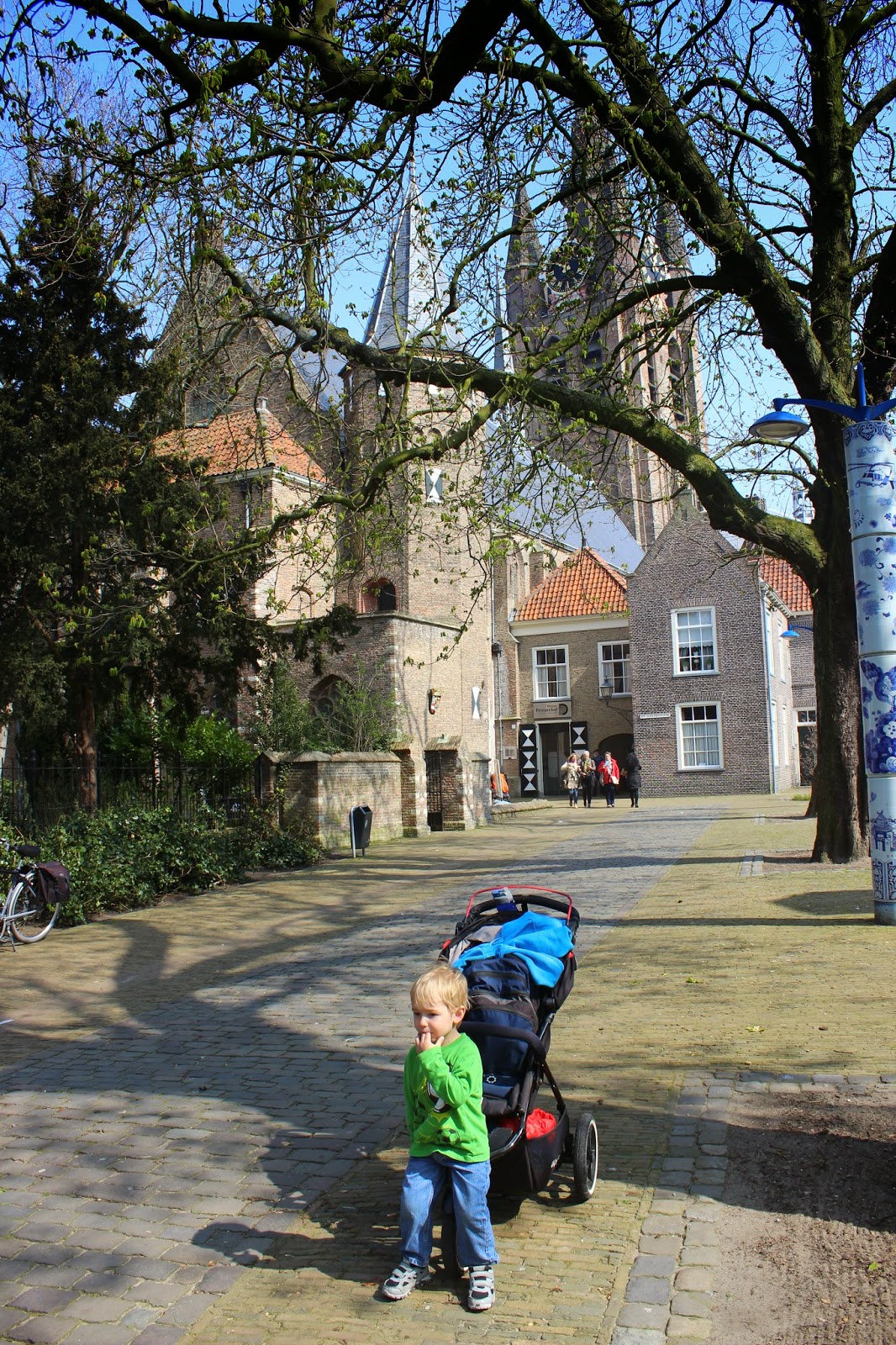 |
| Outside Prinsenhof |
 |
| Prinsenhof museum |
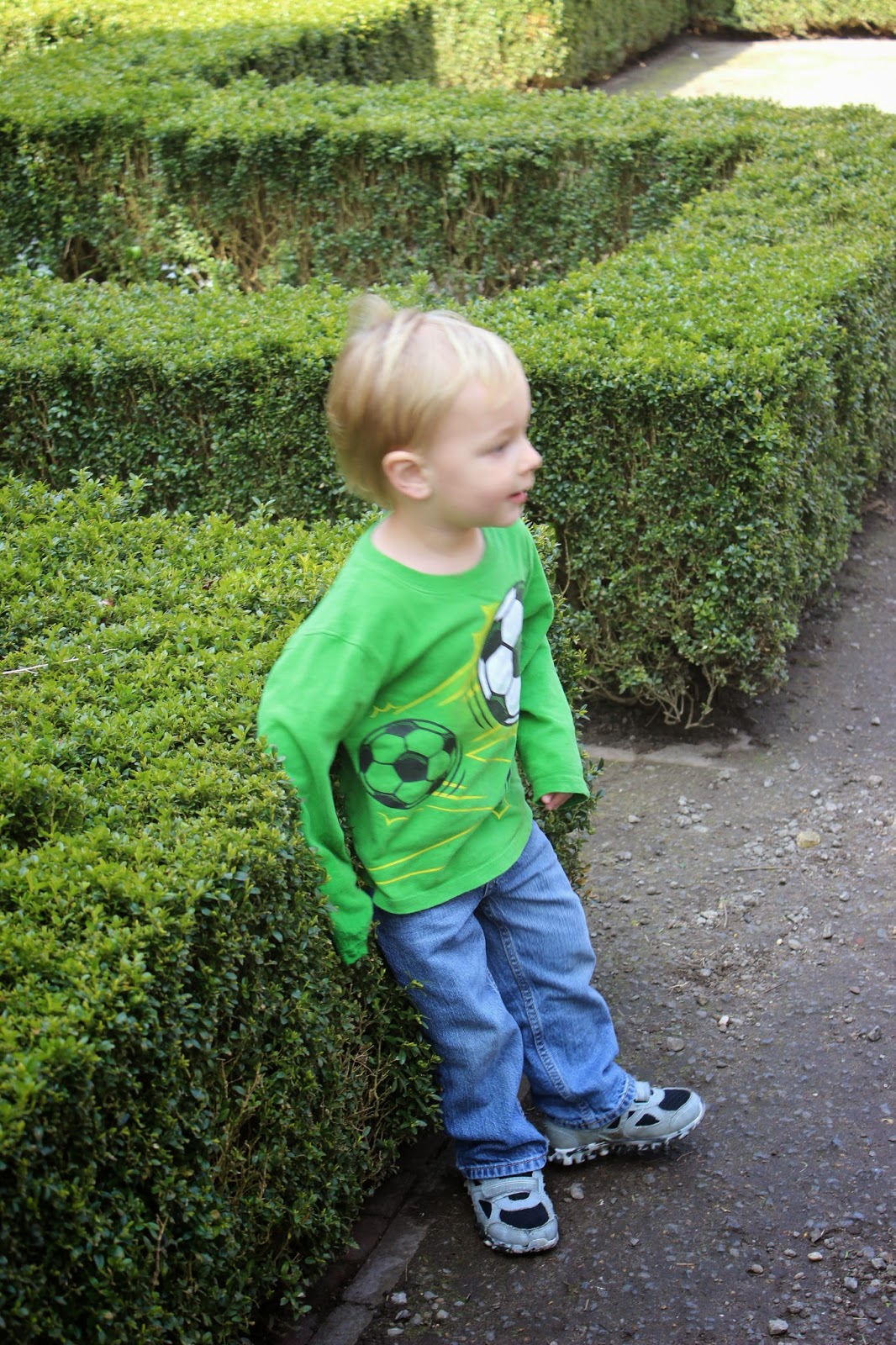 |
| "Mommy, I crashed! Tow Me!" |
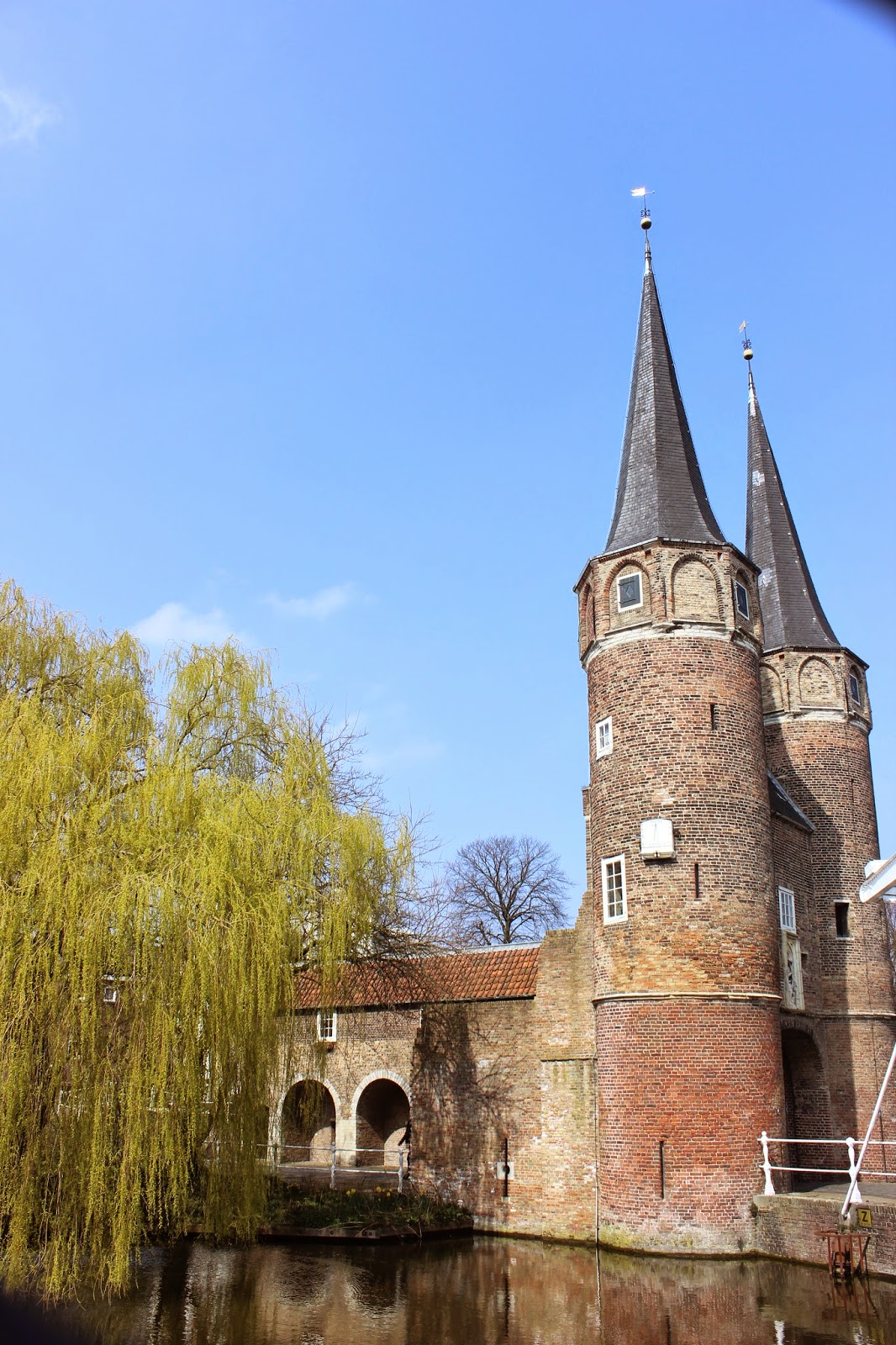
 |
| Lightning McQueen! |
 |
| Old William of Orange's house |
 |
| Old map of Delft in special exhibition |
 |
| Racing around the garden! |
 |
| Delft Canals |
 |
| Oostport gate house |
 |
| Oostport Gate! |
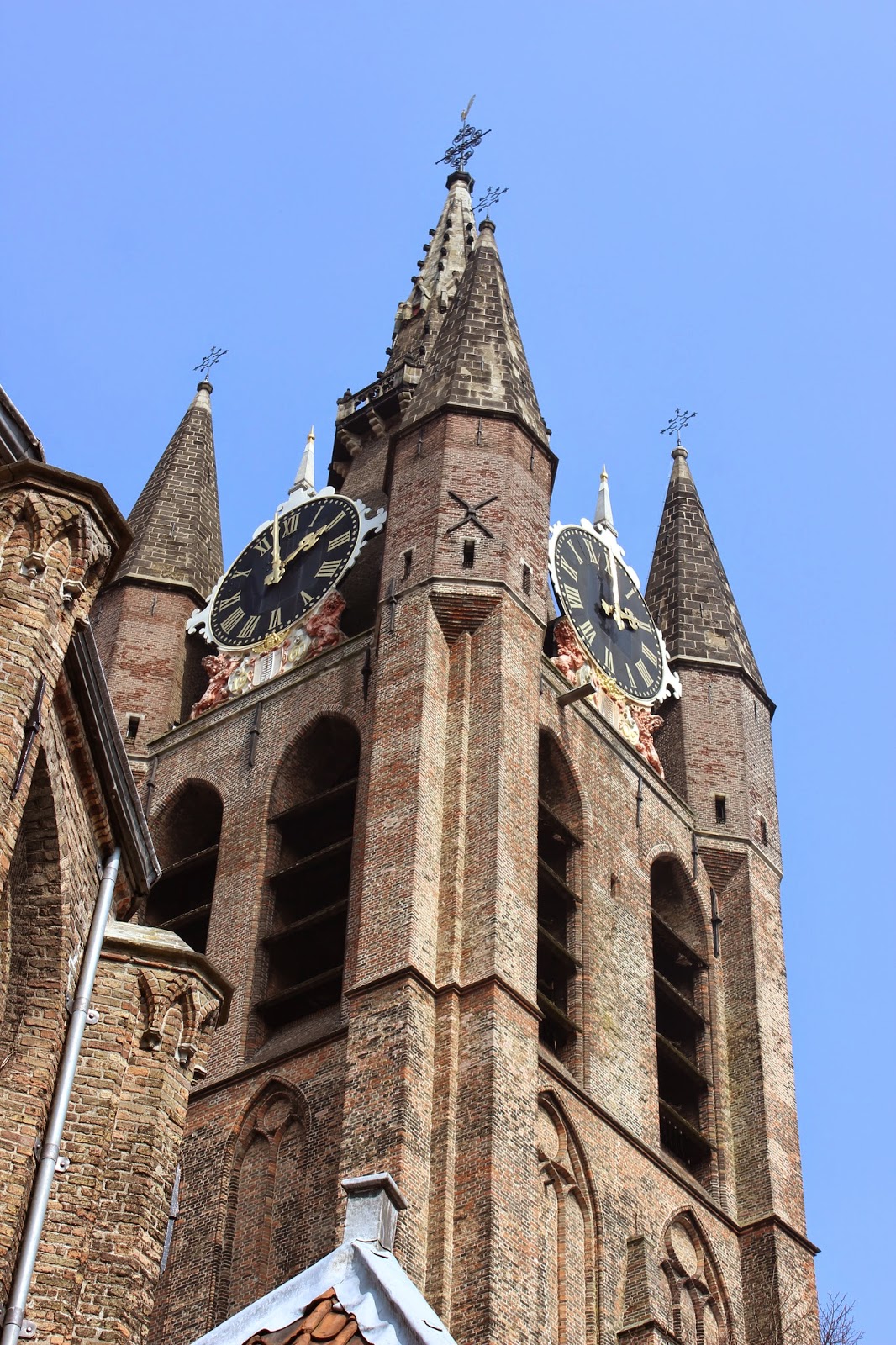 |
| Oude Kerk in Delft clock |
After Landon ran around a bit more in the garden, we headed
over to Oostpoort. This is the only remaining medieval gate of the city. It had
interesting architecture with the pointy towers. I imagine back in the day when
most houses were only 1-2 story, and there were not houses outside the gates,
that the gates could be seen prominently even from far away. With these two
attractions, we had finished my short list of things to do in Delft. I would
recommend Delft to anyone visiting the Netherlands. It was my favorite city
that we visited while we were there.
 |
| Love these towers |
 |
| Imagine approaching the city and coming through this gate |





























Comments
Post a Comment